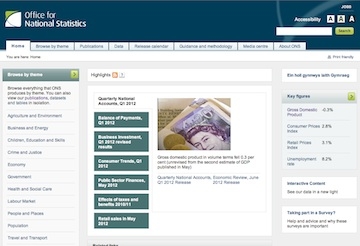Inflation has fallen to 1.5% according to the latest figures from the Office of National Statistics.
The organisation announced this morning that the Consumer Prices Index grew by 1.5% in the year to August 2014, down from 1.6% in July.
CPIH (not a national statistic) grew by 1.5% in the year to August 2014, unchanged from July. RPIJ grew by 1.8%, also unchanged from July.
Ben Brettell, senior economist at Hargreaves Lansdown, said: "With inflation at a five-year low, it is difficult to see why the Bank of England should even consider raising interest rates at present. We are faced with uncertainty around the Scottish referendum, and there are signs the economy is slowing somewhat, with UK manufacturing activity growing at its slowest rate in 14 months in August.
{desktop}{/desktop}{mobile}{/mobile}
"Inflationary pressures remain notable by their absence. Wage growth is yet to materialise (latest figures out tomorrow are expected to show just 0.5% growth), meaning we aren't suffering the traditional 'wage-price spiral'.
"Considering that the oil price is close to a two-year low, and the supermarket price war remains ongoing, I expect CPI inflation to remain well below target for the remainder of this year and into next year.
"Low inflation on its own might not stop the MPC moving to raise rates in the near term, but it should certainly allow the BoE to make good its promise to raise rates slowly and steadily.
"I still believe the first move will come after next year's election. If Scotland votes 'yes' this week, the prospect of a rate rise recedes further into the distance."
Vanessa Owen, LV= Head of Annuities and Equity Release, said: "The fall in inflation is good news for those households concerned about the rising cost of living. This is especially important for retirees as they are often hit hardest by rising inflation. This section of society often spends a significantly higher proportion of their disposable income on bills, such as electricity and less on luxury items.
"With people spending longer in retirement, the risk of inflation eroding someone's purchasing power is an issue that should be considered when deciding how to structure their income.
"Whilst there are retirement solutions available that provide an element of inflation-proofing, the majority of annuities are purchased on a level basis. However following the pension reforms we expect this to change as increasing numbers of retirees look to alternatives such as fixed term and investment linked annuities."

